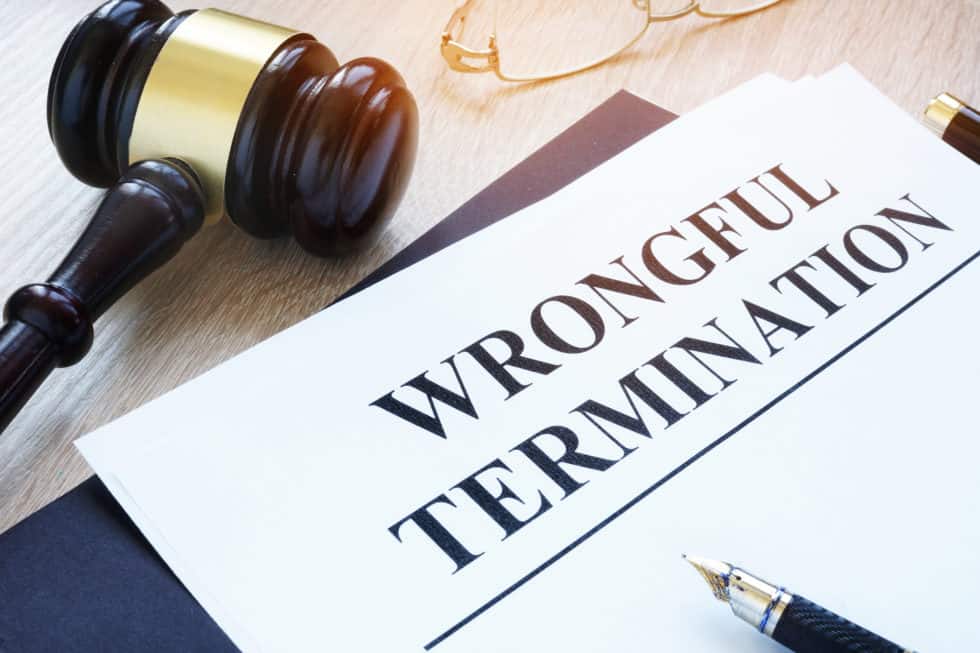Attorney advertisement by Edwin Aiwazian of Lawyers for Justice, PC, headquartered at 450 N Brand Blvd, Glendale, CA 91203
A statute of limitations sets a time period for filing a lawsuit. After it runs out, you are barred from filing a claim in most instances. Statutes of limitations are in place to ensure you don’t delay making a claim for damages, which could lead to lost evidence, a lack of relevant documentation, or witnesses not accurately recalling key details. For a wrongful termination claim in California, the statute of limitations varies depending on the type of claim and circumstances involved.
Violation of Public Policy
If a wrongful termination involves a violation of public policy, the statute of limitations is two years from when the termination took place. A challenge here is California is an at-will employment state. Employers have the legal authority to terminate employees at any time, for any reason. In violating public policy, an employer fires a worker for engaging in an activity that is protected under the law, such as taking family/medical leave or reporting unsafe working conditions.
Discrimination and Harassment
The deadline to file a discriminatory wrongful termination claim varies depending on the law. Under the Civil Rights Act of 1964, which is enforced by the Equal Employment Opportunity Commission (EEOC), employees have 180 days from the day they are terminated to file a charge with the EEOC. This general rule applies with various federal anti-discrimination laws. If you decide to file a charge with California’s Department of Fair Employment and Housing, you have a 300-day deadline.
If neither agency resolves the charge, a Right to Sue notice is issued and you have 90 days to file a civil action in court. Filing a charge under state law is different than with federal law. Under California’s Fair Employment and Housing Act (FEHA), an employee can file a wrongful termination charge related to discrimination for up to a year after the notice is issued.
Breach of Contract
For wrongful termination based on violations of a written or implied contract, you have up to four years to file a claim. The statute of limitations begins from the date the breach occurred. However, the time limit is two years from the breach of contract if it is implied rather than written. Implied contractual arrangements are based on actions or behaviors on the part of an employer and employee.
Labor Code Violations
If you’ve been wrongfully terminated and are owed minimum wages, overtime pay, or commission, you must file a claim within three years of having earned those wages. Claims must be filed with the Labor Commissioner or in court. If you take the claim to court, you can gain a year by initiating a cause of action under Business and Professions Code Section 17200. This effectively extends your right to file a claim to up to four years after owed wages are due.
Other Deadlines
Union employees have just six months to file a claim against an employer that breached a Collective Bargaining Agreement or failed to represent them. There is a three-year statute of limitations to sue for fraud while you have one year to sue an employer for defamation. For discrimination claims under the California Equal Pay Act based on gender or claims involving violations of the Family Medical Leave Act, statues range from two to three years.
Contact Lawyers for Justice
Knowledgeable in every state and federal labor law, our Los Angeles employment lawyers can help with your wrongful termination case. We’ll determine what statute of limitations applies to your claim and whether it qualifies for any exceptions. Either way, our wrongful termination attorneys will provide the advice and representation needed to uphold your rights and recover compensation. Schedule your free consultation by calling 818-JUSTICE.
do I need a lawyer for wrongful termination?
If an employee has experienced wrongful termination, they will need an experienced employment lawyer or wrongful termination attorney – like the team at Lawyers for Justice, PC – on their side. A wrongful termination lawyer has a sophisticated knowledge of the law and knows how to strategically fight for employee rights so they can win the most compensation. The Lawyers for Justice, PC law firm offers a free consultation so that cost is not a barrier for legal help.
how much does a wrongful termination lawyer cost?
The cost of a wrongful termination lawyer varies by law firm. However, Lawyers for Justice, PC strives to ensure that everyone who needs help, gets it. The firm offers representation on a contingency basis, which means clients do not pay any up-front costs to retain a wrongful termination lawyer. They only pay if they win their case.
what kind of lawyer do I need for wrongful termination?
An employment lawyer is the type of attorney who can help win a wrongful termination lawsuit. Lawyers for Justice, PC has helped wrongfully terminated employees for nearly 15 years and has recovered over $1 million for California workers. The firm has a strong track record of winning cases and standing up against bully bosses.
how long does a wrongful termination case take?
Each wrongful termination case is different; some can be settled in days, while others may take weeks. Call (818) JUSTICE today to get more information on your specific case.
can at will employees sue for wrongful termination?
Yes, at-will employees can file a wrongful termination lawsuit in California. California is an at-will employment state, which means that an employer can fire employees for any reason. However, there are still legal practices that employers must follow to ensure firing someone does not violate any California laws.
is wrongful termination hard to prove?
Wrongful termination can be hard to prove, but there are 3 tips that make building a wrongful termination lawsuit stronger:
- An employee should document everything they do, including personal interactions, from their arrival time to when they leave.
- If an employee can find a witness to vouch for their wrongful termination claims, or have also experienced the same treatment while at work, the case becomes stronger.
- An employee should record each interaction with their superiors.
Attorney advertisement by Edwin Aiwazian of Lawyers for Justice, PC, headquartered at 450 N Brand Blvd, Glendale, CA 91203
Think you deserve justice?
-
Get a Free Case Evaluation
-
Retain Service with No Upfront Cost
-
Get the Justice You Deserve
-
No Win, No Pay










How to Handle Wrongful Termination – FAQ’s